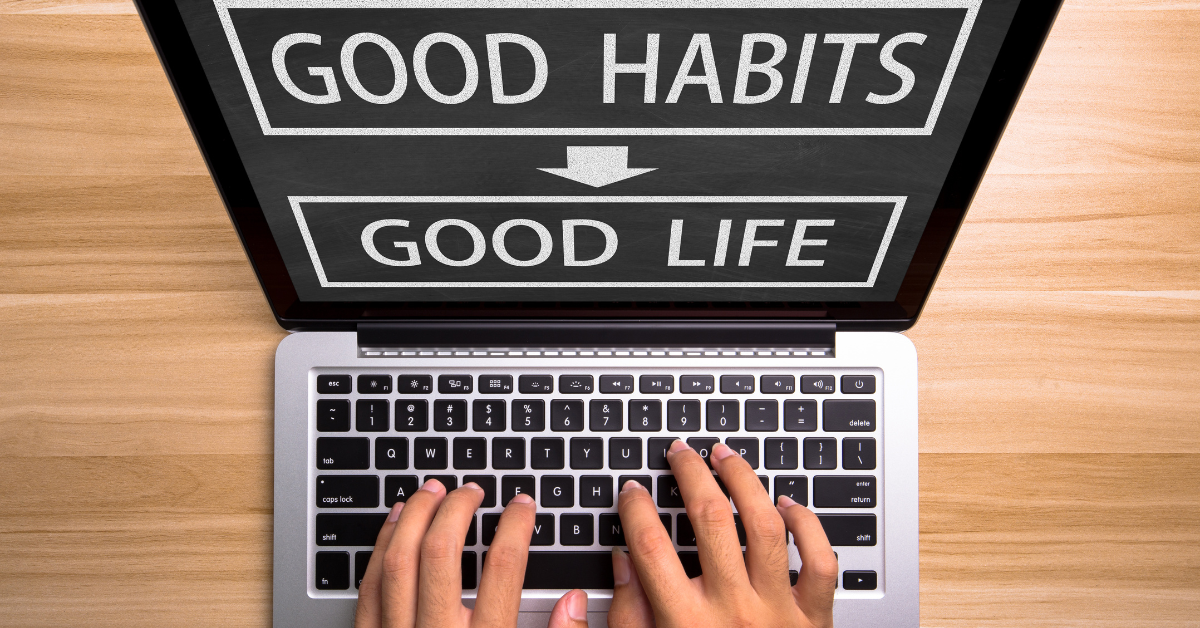Ever looked back at a procrastination moment and wondered "Why on earth did I keep pushing off that task?" or smack talk yourself with "I really need to get my act together!"?
What if I told you there is hope for you, that knowing the science behind success-driven habits and having the right strategies can help you bust procrastination and boost productivity?
In today's blog, lets:
- Tackle the procrastination aftermath
- Shift the spotlight from "What did I do?" to "What can I do now?"
- Share stories and real-talk moments that'll help turn your aspirations into actions.
Ready to move from dreaming to doing? Let's get into it!

The Science of Habits: A Quick Overview
Heard of the song "All About That Bass" by singer-songwriter Meghan Trainor?
Well when it comes to the science of habits, it's more like "All About that Brain", because your brain holds the key.
Habits are like the software running in the background of your mind, influencing a significant part of your daily actions without you even realizing it. At the center of this is your brain's power player: the basal ganglia. This is a group of brain structures responsible primarily for motor control, executive functions and behaviors, may also play a critical role in how people form habits, both bad and good, and in influencing mood and feelings.
Add to this discovery is the brain's ability to detect and store patterns and then delivering a hit of dopamine to reward you when you follow the same cycle.
Take the following, for example: You wake up to your alarm (cue), you hit the snooze button (routine), and then you enjoy a few more moments of sleep (reward).
This cycle, known as the habit loop, is crucial in understanding why we do what we do. But what intensifies this loop is the craving – that deep desire for the reward. This is what makes breaking a habit such a challenging endeavor.

Identifying and Analyzing Bad Habits
I'd like to tell you about "Jane", a successful entrepreneurial business coach.
Jane has always been an achiever with impressive ambitions. But she has this one quirk: every time she faces a daunting task, she finds herself checking her emails or making unnecessary calls. The immediate relief she feels (the reward) is palpable, but the long-term consequence is decreased productivity and increased stress. She actually puts in more hours than necessary to make up for the lost hours spent in procrastination which also steals time from other pursuits in life.
Like Jane, many achievers fall into the trap of procrastination. If you want to break an unhealthy pattern, it’s essential to identify the cues triggering these routines and understand the rewards you're seeking, even if they're just temporary.
The Process of Habit Replacement
Now, let's get proactive. Instead of passively succumbing to procrastination, how about using that cue to engage in a more productive routine? It's like reprogramming a computer.
Back to the snooze button example. What if, the next time your alarm sounds, you immediately stand up and do five jumping jacks? Your reward could be a refreshing glass of water or a moment of stretching. With time, your brain will associate the alarm with a burst of energy rather than a few more minutes of sleep.
In these cases, it's great to not give your brain much time to think else it will try to reason its way out of your attempts to change up a habit. The key is getting your body into motion and just going whatever it is you want it to do, without giving your brain time to talk you out of it.
Addressing Common Setbacks in Habit Formation
The path to replacing procrastination with productivity isn't always smooth. You might've heard it takes 21 days to form a habit, but science says it varies for everyone. I personally recommend setting yourself up for 60 days of accountability. If you master it sooner, icing on the cake!
Some days, motivation might be hard to come by, and that's okay.
Remember, setbacks don’t define failure; giving up does.
A friend of mine always dreamt of writing a novel. But like many others, she kept pushing it off. One day, she courageously put herself out there on social media, broadcast her goal and then shared weekly updates. The outpouring of support and gentle nudges when she missed an update kept her going. A year later, her novel was complete and ready for the publishers!
Sharing your goals creates a layer of accountability. It can be a public declaration or a pact with a friend. Just ensure it's with someone who'll provide the right mix of encouragement and constructive nudges.

10 Strategies to Foster Productive Habits
To build strong, lasting habits that will kick procrastination to the curb, you need more than just willpower. The environment you create, the systems you set up, and the reinforcements you establish all play pivotal roles in ensuring your success.
Here’s a checklist of strategies tailored for the go-getters who refuse to let procrastination dictate their achievements:
- Start Small: Begin with easily achievable tasks that act as stepping stones to your ultimate goal. If your aim is to write a book, start by dedicating just 10 minutes a day to writing.
- Be Consistent: Consistency is the glue that holds your habits in place. Designate specific times of the day for your tasks to embed them into your routine.
- Use Visual Reminders: Sticky notes, digital alarms, or even simple string tied around your finger can serve as reminders. For example, if you're striving to drink more water, placing a filled water bottle on your desk can serve as both a reminder and a nudge.
- Assess Your Environment: Ensure your environment promotes productivity. A clean workspace, a comfortable chair, or even the right room temperature can significantly enhance your focus.
- Track Your Progress: Use habit trackers or journals. Each tick or crossed-out day acts as a visual testament to your commitment and propels you to keep the streak alive.
- Reward System: Set up rewards for milestones reached. Achieved a week of consistent workouts? Treat yourself to something you love. These rewards act as positive reinforcements.
- Public Commitment: Sharing your goals, be it with family, with a coach, or publicly on social media, brings in a layer of accountability. The encouragement you receive can be a significant driving factor.
- Pair New Habits with Existing Ones: Linking a new habit to an established one can create a powerful anchor. For instance, if you’re trying to meditate regularly, do it right after brushing your teeth in the morning.
- Understand Your 'Why: Remind yourself regularly about the reason behind your new habit. When the purpose is clear, the motivation to continue becomes more potent.
- Stay Educated: Read about the benefits of your new habit. The more you know about the positives, the more inclined you’ll be to stick with it.

The Ripple Effect of Good Habits
Once you start aligning your habits with your goals, something magical happens. One positive habit cascades into another, creating a chain of productive behaviors. You nail the first step which boosts your confidence to move on to the next, which then propels you to take on even bigger challenges.
Conclusion
Breaking free from the clutches of procrastination isn't about grand gestures. It's the little, consistent steps that lead to success. By understanding the science behind your habits and applying strategic tweaks, you can not only boost productivity but also pave the way for success in every venture.
Ready to embark on this transformative journey?
Alright, over to you! What’s your story? Have you found the secret sauce to beating procrastination? Let’s chat in the comments below. 🌟
Want to kick the habit of procrastination?
Get the FREE 23-page Master Work-Life Harmony Starter Kit, a holistic stress-busting guide especially for ambitious achievers, with 15 proven tips and 50+ linked tools to help driven achievers master work-life harmony, sustain inner balance and take control of your life. Get it here.

